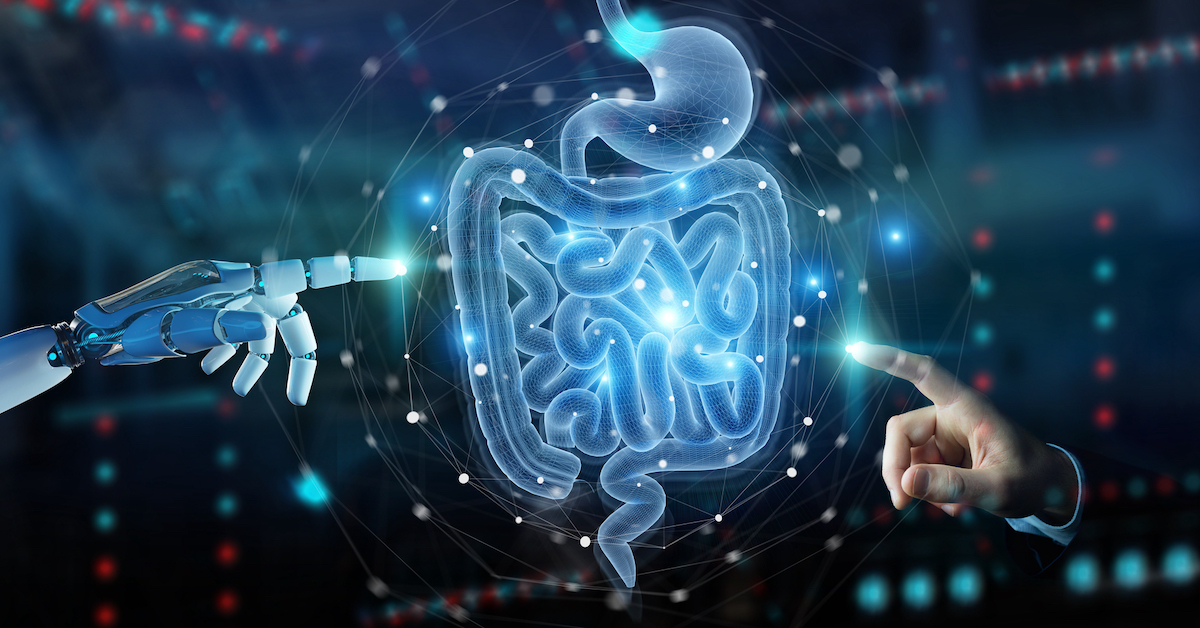To suggest microbes that reside in the gut could impact the health of the brain was considered heresy just a decade ago. And yet today the gut-brain axis is well recognized.
The connection is demonstrated in a new human study on depression. It’s one of the first to show that you can lift your mood by improving the diversity and quality of the gut microbes through consuming certain types of foods.
So, if you’ve been battling depression or feeling stressed out you might be interested in the psychobiotic diet.
The breakthrough began back in 2013 when scientists at the University College Cork in Ireland first identified a set of microbes in the gut that could improve mood.
They called them psychobiotics.
Chilled Out Mice
In one of their initial studies, they fed mice a strain of this psychobiotic bacteria. Neuroscientist John Cryan, who led the study, reported on the outcome: “They behaved as if they were on Prozac. They were more chilled out and more relaxed.”
In yet another study, the gut bacteria of patients suffering from clinical depression were transferred to rodents, after which they too became depressed. Professor Cryan’s colleague, Ted Dinan, a professor of psychiatry, explained, saying, “We were very surprised that you could, just by taking microbiome samples, reproduce many of the features of a depressed individual.”
Out of this ground-breaking research Professors Cryan and Dinan developed the psychobiotic diet. This diet is designed to invigorate a person’s gut bacteria or microbiome to battle depression and stress. To see if their diet really worked, they recently carried out the first human trial.
Almost Doubles Stress Reduction
The researchers recruited forty-five healthy adults who ate low fiber diets. The team measured their mental health and perceived levels of stress using a questionnaire. They also took stool samples. Then they randomized each person into either the psychobiotic diet group or a control diet group.
The psychobiotic diet group consumed fruits and vegetables high in prebiotic fibers – e.g., onions, leeks, cabbage, apples, bananas, oats – (6–8 servings per day), grains (5–8 servings per day) and legumes (3–4 servings per week) as well as fermented foods – e.g., sauerkraut, kefir or Kombucha – (2–3 servings per day).
For the control diet, researchers asked participants to adhere to healthy eating guidelines laid out by the USDA Food Pyramid. Compared to their usual dietary habits, this would be a step up.
After four weeks, researchers observed only subtle changes in microbial composition and function from the stool samples in those following the psychobiotic diet. Even so, there were significant changes in the metabolites produced by the gut. The results were tangible…
Almost a third (32 percent) in the treatment group experienced a reduction in perceived stress and depressive symptoms compared to just 17 percent in the control group. Those that followed the diet most closely (fermented foods were challenging for many participants), saw the most improvement.
In addition, the quality of sleep improved in both the treatment group and the control group.
The scientists were overjoyed by the results and call it a breakthrough in stress management.
Psychiatrists Should Give Nutritional Advice
Professor Cryan commented, saying, “Although the microbiome has been linked to stress and behavior previously, it was unclear if by feeding these microbes demonstratable effects could be seen.
“Our study provides one of the first data in the interaction between diet, microbiota and feelings of stress and mood. Using microbiota targeted diets to positively modulate gut-brain communication holds possibilities for the reduction of stress and stress-associated disorders…”
Professor Dinan added: “As a psychiatrist, I am conscious of the fact that psychiatrists rarely give patients dietary advice. Our research in recent years provides evidence that an appropriate diet is essential in managing stress-related disorders.
“Hopefully, the current paper will encourage psychiatrists to include nutritional advice as part of holistic patient management.”
My Takeaway
I’m not at all surprised by this research. Every study I’ve ever seen suggests that a healthy diet and lifestyle reduces feelings of depression and anxiety while helping manage stress. The new research into the role of gut bacteria in the reduction of stress and depression is exciting, however. I would encourage anyone who battles depression or struggles to manage stress to give the psychobiotic diet a try.







